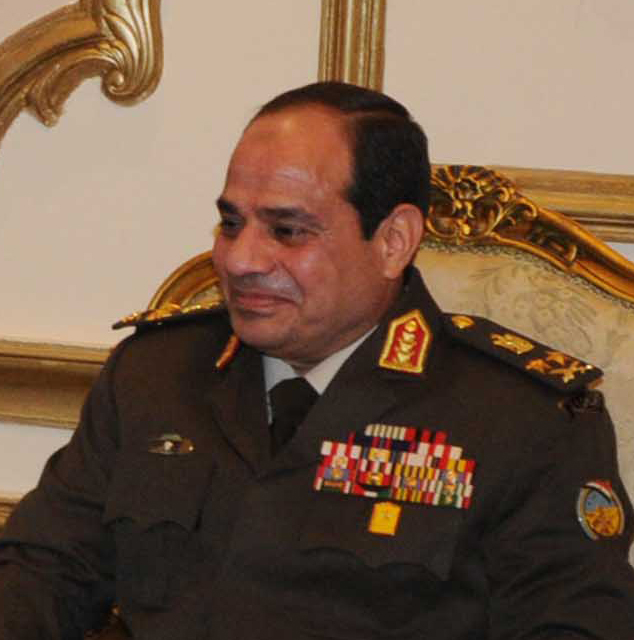The Egyptian military injected itself into domestic politics by warning that it would not allow the country to devolve into chaos. A week before planned protests against the Morsi government, Defense Minister and head of the Egyptian military General Abdul Fattah al-Sisi gave a speech saying that the military bore responsibility for holding the state together and called on all parties—including the government—to resolve the current crisis. Said Sisi, “It is important to have harmony among all parties, and those who think this situation is good for the country are mistaken. It harms the country and threatens Egyptian national security.”
General Sisi’s speech was guardedly neutral and did not single out any party or faction as being solely responsible. Sisi claimed that the army sought “a formula of real understanding, agreement and reconciliation to protect Egypt and its people,” and asked for the crisis to be resolved in the week before protests were scheduled. Sisi further insisted that the army had no preference for the direction of civilian affairs: “We are impartial and neutral. Our loyalty is to Egypt and its great people.”
Sisi’s speech was delivered as sectarian strife surfaced in the province of Giza, near Cairo. In the village of Zawyat Abu Musalam, a mob of Sunnis numbering about 3,000 attacked a group of Shia Muslims praying outside a house. Hassan Shehata, the Shia imam, and three of his coreligionists were lynched, and at least 30 Shias were beaten severely enough to require hospitalization. Additionally, several homes were destroyed. Hazem Barakat, an eyewitness who posted photos of the violence online, said that Salafist sheikhs had been inciting Sunnis to violence against Shia for several weeks. Shehata, 66, was a prominent Shia figure who had been jailed twice for “insulting religion” during the rule of Hosni Mubarak.
Some in Egypt accused the major Salafi political parties, al-Nour and the Building and Development Party, of involvement or responsibility, but these parties denied having anything to do with the killings. “We have warned the regime about looming sectarian friction, amid acts of insulting and demonizing the Sahabah [the companions of the Prophet Mohamed] which will shock the fabric of Egyptian society, but it paid no heed,” al-Nour party spokesman Nader Bakkar said.
Others in Egypt blamed various state actors for, at minimum, failing to stop the attacks. Barakat and other eyewitnesses said that police were present, but they did nothing to halt the violence. The attacks came just a week after an event at Cairo Stadium where Salafists and other leaders excoriated Shias for their role in violence in Syria. At The Conference of the Egyptian Nation to Support the Syrian Revolution, several conservative Sunni sheikhs used inflammatory language insulting both Shias in general and those who considered participating in the planned June 30 protests. The speakers used terms such as angaas – “impure ones” – and raafidah – “deserters” – to describe Egyptian Shias, and kaafirah – “infidels” – to speak of both the Assad regime in Syria and protesters in Egypt. President Mohammed Morsi sat on stage during those speeches, and when it was his turn to speak, he said nothing to defend Shias, causing many to accuse him and, by extension, the Muslim Brotherhood of complicity in the killings on June 23.
